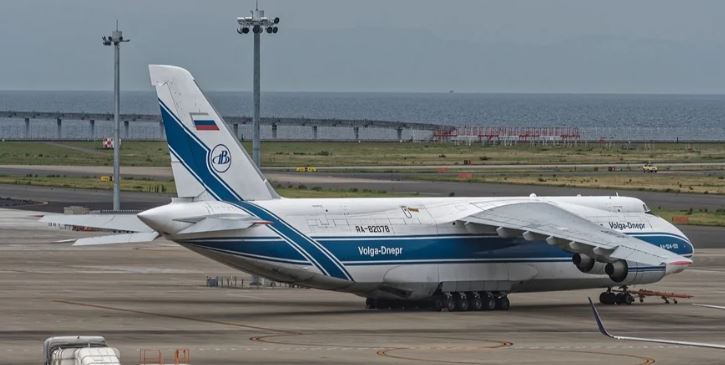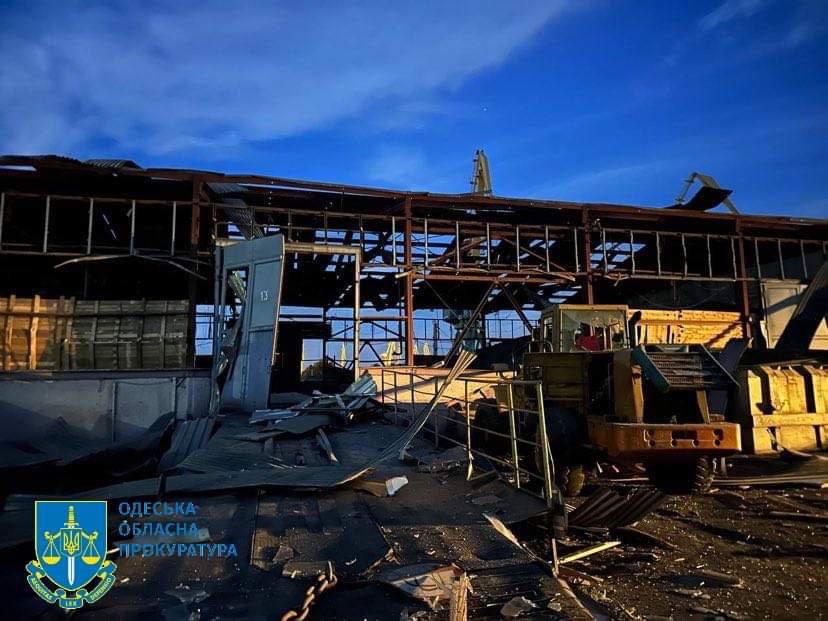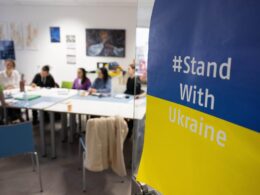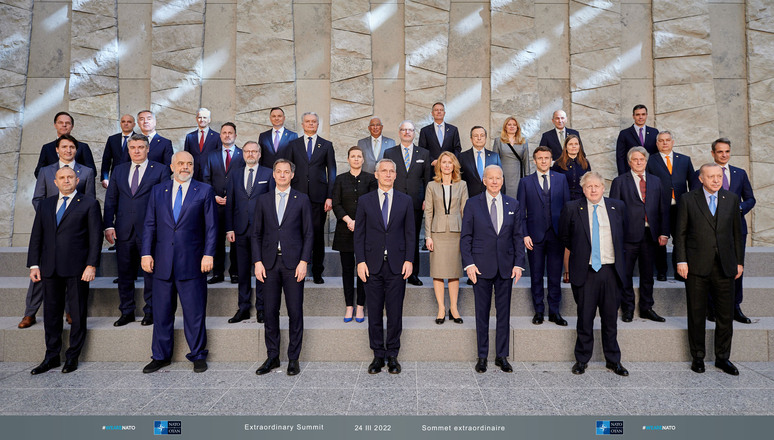Article by: Ivan Horodyskyy and Sofia Kosarevych
Ayear and a half after the beginning of Russia's aggression against Ukraine, one of the most discussed issues in the context of compensation for damages are the frozen assets of Russia, estimated at hundreds of billions of US dollars. For example, the European Union alone controls assets of the Central Bank of Russia worth over $200 billion, and this figure does not include tens of billions of private funds and property of Russian oligarchs.
Using these funds would compensate for Ukraine’s damages faster and more effectively. Otherwise, given the scale of the destruction by Russia's relentless war, the compensation process could drag on for many decades, as previous practice shows. For example, the last reparations for World War I were paid by Germany only in 2010, almost 100 years after the war's end.
However, practically no steps have been taken toward this goal so far. Of particular concern in this context is the position of the EU, which has not yet developed a clear vision for further work with Russian assets. And thus risks finding itself in a situation where the restoration of Ukraine will be paid not by the guilty party -- the Russian government and oligarchs -- but by European taxpayers.
Current EU policy regarding Russian assets
The current position of the European Union regarding frozen Russian assets is based on three main principles.
- The EU is not contemplating confiscating Russian assets in connection with Russia's aggression against Ukraine. This approach is often attributed to the traditional sentiment towards Russia that has taken root in Europe in recent decades along with the influx of Russian billions.
For example, in one of his comments, Austrian Foreign Minister Alexander Schallenberg emphasized that since EU member states are states governed by the rule of law, all decisions must be flawless in the case of decisions regarding Russian assets, because "If any of these decisions is overturned by a judge, it would be a diplomatic and economic disaster."
However, the reasons here are more profound and related to Europe's traditional respect for property rights and their protection. This represents the Union and European states as reliable repositories of assets in their own banking system. Losing this reputation threatens the economy of Europe and the stability of the financial system and the euro as a reserve currency.
In particular, the European Central Bank believes that certain decisions regarding frozen Russian assets may prompt states that keep their reserves in the European currency and in European banks to turn away from the euro.
- The EU's goal is to force Russia to pay compensation to Ukraine voluntarily. In this context, frozen assets and their future fate serve as a kind of "leverage" to force Russia to compensate Ukraine for the damage caused by the aggression. This is the reason for the repeatedly stated goal of freezing assets -- to force Russia to voluntarily fork up.
- The EU is searching for intermediate options for compensating Ukraine for Russian damage at the expense of frozen assets. This can include taxing them or "managing" them with subsequent investment. The income received in both cases was to be transferred to Ukraine as compensation for damages.
European Commission President Ursula von der Leyen proposed this as early as 30 November 2022:
"In the short term, together with our partners, we will create an asset management mechanism for their subsequent investment. And the income from such activities will be transferred to Ukraine."
In general, it seems that the EU is ready to pay itself for compensation for Ukraine's damages from Russian aggression, just to avoid the need to confiscate Russian assets.
Using Russian assets to compensate Ukraine's damages: practical aspects
At first glance, the EU seems to lag behind the same US or Canada on the path to ensuring compensation to Ukraine at the expense of Russian assets.
In the United States, amendments were adopted at the end of last year that allow the confiscation of private Russian assets, and a bill currently under consideration in Congress allows the seizure of sovereign Russian assets.
Canada adopted similar legislation back in June last year.
Making the Kremlin pay: five steps for Ukraine and the world to seize Russian assets
As part of its own mechanism, the US has so far managed to confiscate and transfer to Ukraine only $5.4 million from Russian oligarch Konstantin Malofeev, and the most significant success of the Canadian confiscation mechanism may soon be the decision to confiscate an AN-124 aircraft of the Russian airline "Volga-Dnepr."

At the same time, the EU very obviously takes into account domestic political and foreign policy factors when making decisions on the fate of frozen Russian assets.
This is why the EU is trying to block Estonia's steps to create a separate compensation mechanism at the national level. So when the Estonian Ministry of Foreign Affairs announced earlier this year that it was working on a law that would allow the confiscation of Russian assets, the European Commission urged not to rush its adoption. The Commission explained its position by the fact that the Estonian law must comply with the Union's policy in this matter. Since the statement, six months have passed and the law has not yet been published. The key forces in the Estonian parliament supported the idea. Therefore it can be assumed that the EU has levers of influence on the domestic politics of member states.
As for foreign policy, the EU focuses on adopting joint decisions in coordination with partners, primarily from the G7 bloc, in whose work the EU participates at the level of the leadership of the European Commission and the European Council.
Particularly, the G7 recorded the official position that frozen Russian assets should remain immobilized "until Russia pays for the damage it inflicted on Ukraine" in the communiqué following the G7 Hiroshima summit and in the declaration of 12 July, which de facto became one of the outcomes of the NATO summit in Vilnius.
The $ 300 billion question: Why the West does not confiscate Russian frozen assets despite Ukraine war
What needs to be done
Nevertheless, the EU has every chance of becoming a leader in the compensation process for Ukraine. For this, it must make decisions that will allow strengthening the effectiveness of the Union's work in this direction in the medium term.
1. First, it needs to recognize that the compensation for damage caused to Ukraine by Russia's aggression will not, or will not entirely, be resolved within a political settlement. Russia will vehemently deny this obligation and refuse total compensation to Ukraine and Ukrainians.
The EU should envision this turn of events and look for legal solutions that allow unblocking the asset confiscation process. These may include:
- resolving the problem of “sovereign immunities” in relation to Russian state assets;
- creating an effective mechanism for confiscating Russian assets due to support for Russia's aggression against Ukraine;
- realistic scenarios for using or taxing these assets, directing profits to compensate Ukraine.
This will help form a clear and realistic strategy for further work with frozen Russian assets and enable further decisions to be made in light of alternatives.
The lack of such a strategy damages the reputation of the Union no less than the absence of practical steps to confiscate Russian assets. The European Union must demonstrate its commitment to the values of the rule of law and the fight against gross violations of international law and punishment for them, which includes Russia's aggression against Ukraine. In the opposite case, the EU's opponents, both external and internal, will utilize its indecision in future conflicts with the Union.
2. Second, from a practical point of view, it is worth focusing on a general assessment of frozen Russian assets, auditing them, and creating a special registry. This will help ensure transparency in working with these assets and make it impossible to withdraw them from sanctions.
In summary, the EU may seem either passive or indecisive in its attempts to guarantee compensation to Ukraine for war damages. However, it is essential to understand the internal circumstances of the European Union as a collective actor. Any decision, especially on confiscation or other actions with the property of a foreign state, must be consensual within the 27 member countries.
The task is not easy, but it can be accomplished if the ultimate goal is to achieve justice for victims and bring violators to account. And achieving this goal will help strengthen the EU's leading role internationally.
The European Union's reluctance to make effective decisions regarding Russian assets for fear of potential losses has no rational basis.
However, for Ukraine and Ukrainians, it is crucial not just to receive compensation - but to receive it at the expense of the aggressor: for punishment and to prevent future aggression.
And here, the interests of Ukraine and the EU coincide as never before.
The material was prepared with the support of the International Renaissance Foundation as part of the project "Compensation4UA / Compensation for military losses for Ukraine. Phase II: Ensuring the effectiveness of mechanisms at the national and international levels."
 Ivan Horodyskyy is a lawyer and director of the Dnistrianskyi Center, as well as a Board Member of the Ukrainian Bar Association
Ivan Horodyskyy is a lawyer and director of the Dnistrianskyi Center, as well as a Board Member of the Ukrainian Bar Association Sofia Kosarevych is a reparations expert and analyst at the Dnistrianskyi Center
Sofia Kosarevych is a reparations expert and analyst at the Dnistrianskyi CenterRelated:
- The $ 300 billion question: Why the West does not confiscate Russian frozen assets despite Ukraine war
- What EU should do to track Russian assets and seize them for reconstruction of Ukraine
- The Council of Europe makes the first step to compensate Ukrainian war losses using Russian assets
- Making the Kremlin pay: five steps for Ukraine and the world to seize Russian assets
- Estonia to introduce legal blueprint for handing Ukraine seized Russian assets – Bloomberg
- See how your country’s investments to restore Ukraine are being used in real-time





